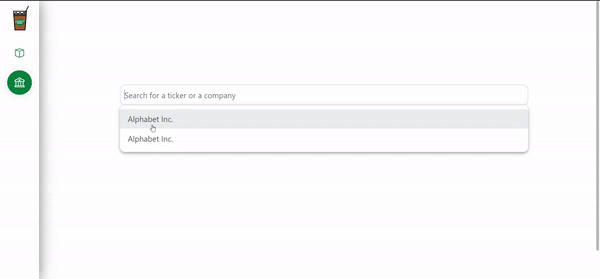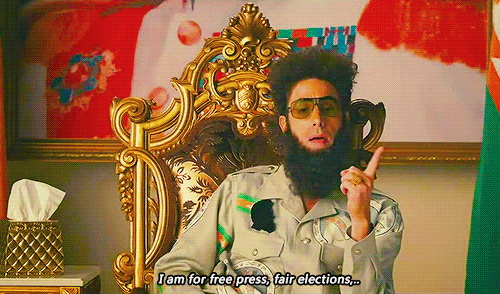Hi👋
Tapan here.
Monthly Mulling is a bi-monthly newsletter sending the best ideas from the web to your inbox for free. High signal. Low noise.
Happy Sunday y’all!
🚀 Let’s start with some good news! After months of development, we have released Cold Brew Money’s biggest product to date!🥳
The goal of the CBM Toolbox is to help you build a structured investing process.
🚫 It will help you reject bad investments quickly
🤔 It will force you to think if you’re investing your hard-earned money in a business that you actually understand
Outside of working on the tool, currently,
📖 What I am reading: Why Nations Fail (yes, still reading this!)
📺 What I am watching: Moon Knight, Seinfield
Onwards🚀
💭MULLING
👨🏽💼 Steve Jobs On Consulting (Video: 2 mins)
I could relate to the video as it was something I came across during my job at PwC🤦🏽♂️
Funnily, it also came up during my interview at Uber - why do you want to leave Big4?
And my response was along similar lines to what Steve explains in the video below.
I find problems but am unable to do anything about them (other than reporting them, duh!).
Being a Gujarati and coming from a line of entrepreneurs, I wasn’t able to make long-term decisions to solve these problems.
💯 Big4 teaches you how to solve problems because there are so many. But it does not teach you how to make long-term decisions and see them through.
And that last bit annoyed me a lot.
Without owning something over an extended period, where one has the chance to take responsibility for their recommendations, where one has to see their recommendations through all action stages, accumulate scar tissues for their mistakes, and pick themselves up… they learn only a fraction.
He continues to say, which I agree with,
[Consultants] are coming in and making recommendations and not owning the results, not owning the implementation… they are getting only a fraction of the value and a fraction of the opportunity to learn and get better.
👉🏽 The consultants only get a 2-dimensional picture. Without experiencing the problem and the results of their decisions, they will never understand the 3-dimensional aspects of the problem.
😓 One Problem With Developing Countries by Daron Acemoglu
The first section of Why Nations Fail revolves around this problem - why do some countries develop while others struggle?
Yes, colonization is one of the biggest reasons. It did set a lot of countries back by 200-300 years of development. But we are talking about countries after they gained their independence.
⛔ It has nothing to do with the nation’s location, culture, or lack of knowledge.
✅ The problem is the nation’s institution. If you want to explain why two countries can have such different living standards, look at the institutions they have put in place.
Poor countries are poor because those who have power make choices that create poverty.

Institutions (economic and political) could be of two types:
👍🏽 Inclusive: these institutions encourage people to work hard and be creative because they know their efforts will bring wealth. It also means, politically, every group in the nation is represented and decisions are made with pluralism.
👎🏽 Extractive: An extractive economic institution receives income and power from one group in society for the benefit of another group. Think corrupt dictator and his clique stashing money into a Swiss bank account. The people don’t want to put effort because they know their hard work and creativity won’t bring prosperity to them.
💭 When I reflected on this, it’s surprising how India was able to overcome problems like partition, famines, multiple religions, princely states, education, language barrier, and an almost dead economy to form a “somewhat” inclusive democratic union.
I believe this was owing to the leaders at the time who were able to push the country in the right direction. If it wasn’t for them, India might have been one of the underdeveloped countries in a vicious circle of extractive institutions.
If you ever want to figure out where a country is headed, look where its institutions are headed.
🌠 Engineered Serendipity by Sahil Bloom (Tweet)
What we call "luck" is actually the macro result of 1,000s of micro-actions.
Your daily habits can put you in a position where "luck" is more likely to strike.
Increase your serendipity surface area. Engineer your own serendipity.
David Perell has given tips on how to engineer serendipity,
🚗 Build A Serendipity Vehicle: Make it easy for people to find you online. This will create new opportunities.
🤝🏽 Be A Connector: Meet people indirectly and help them meet people with similar interests.
〰️ Zig & Zag: Work on many different things at the same time, cross-pollinate ideas.
🎙PODCAST - COLD BREW MONEY
If you’re a listener, thank you so much!❤️
Can I ask you to share the podcast with one friend/family this weekend?
💰 Nine Steps To Achieve Financial Independence: This is an instructional manual on steps you need to follow to build wealth by the Money Guy. It explains how you should allocate your income at various stages of your life.
💸 We Bought This Stock: We added another $1000 to the CBM Portfolio and invested in a stock that owns multiple businesses that you can see in the thumbnail below👇🏽
Do you think any of your friends will like Monthly Mulling like you? Share it with them!😇
Thanks for reading. If you like Monthly Mulling, let me know. You can reach out to me on Instagram, Twitter, LinkedIn, or just reply to this email!









